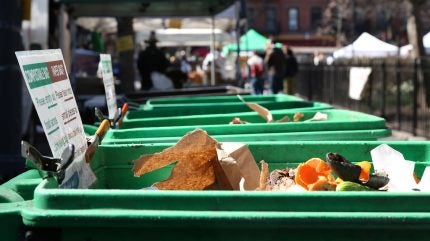
Better Earth, a compostable foodservice packaging solutions provider, has announced the launch of its compost drop-off database.
This tool is designed to help US consumers easily find local industrial compost drop-off locations, facilitating the disposal of organic waste.
The database is a key component of Better Earth’s broader initiative to help consumers navigate the national compost infrastructure, including haulers and drop-off sites.
The sustainability team at Better Earth, led by circularity coordinator Blair Michal, has identified 315 composting facilities that accept food waste across 43 states, 250 hauling companies, and 457 compost drop-off sites.
Michal and the team say they have meticulously compiled information from state and federal databases to create an industry-leading resource on US compost infrastructure.
Michal said: “Identifying over 1,000 data points on our map, including composting facilities, haulers, and drop-off locations, shows the momentum that is building in the commercial composting industry.
How well do you really know your competitors?
Access the most comprehensive Company Profiles on the market, powered by GlobalData. Save hours of research. Gain competitive edge.

Thank you!
Your download email will arrive shortly
Not ready to buy yet? Download a free sample
We are confident about the unique quality of our Company Profiles. However, we want you to make the most beneficial decision for your business, so we offer a free sample that you can download by submitting the below form
By GlobalData“With almost half of those being drop-off sites, it is great to see how accessible composting is becoming.
“This also demonstrates the potential to strengthen the circular systems within our communities.”
The ‘Compost Drop Off Database’ will be audited and updated annually by Better Earth to ensure its accuracy and relevance.
Drop-off sites serve as community hubs where residents can bring their organic waste such as food scraps and compostable packaging for free.
These sites are vital for reducing the negative impacts of food waste on the climate, given that nearly 40% of food is wasted in the US, with only 5% being composted.



